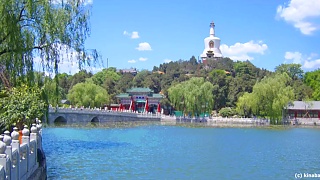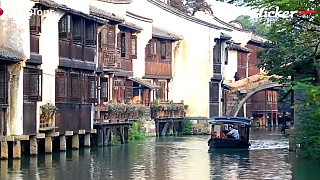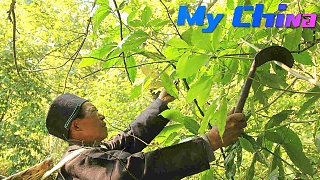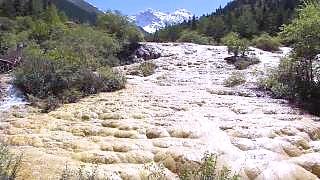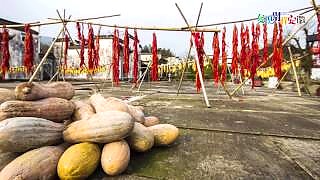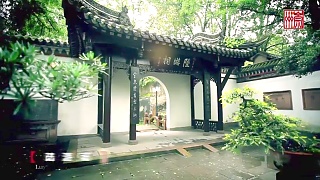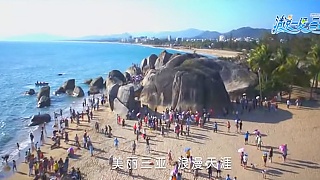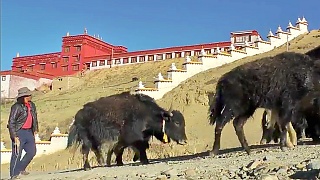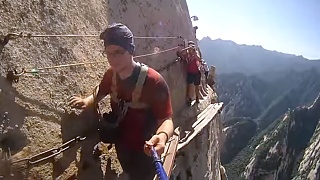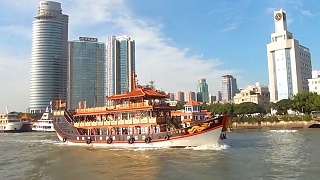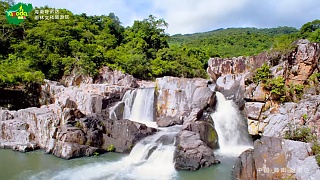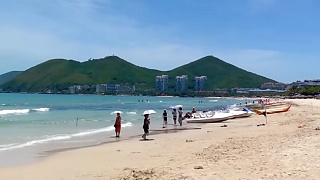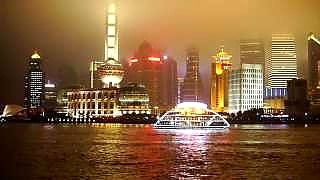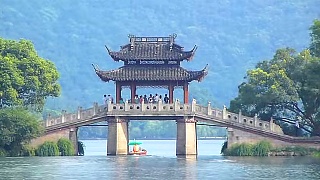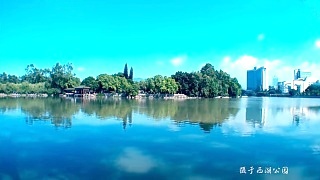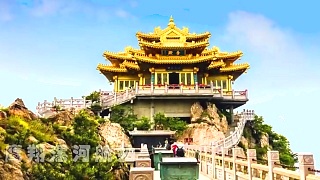
|
Near LuoYang, provincial capital of HeNan, central China.
There is a LaoZi Cultural Park near the foot of the mountain and a cable car is available to reach the top.
The ancient sage LaoZi (in modern PinYin though one will still also see Lao-Tse or Lao-Tzu) who started Daoism (Taoism) and authored the Dao De Jing (Tao Te Ching), is said to have gained inspiration here around 550 BC.
The Dao (道) which roughly translates as 'the way', in the sense of how things are, is a concept that existed in Chinese thought many centuries before LaoZi, but it was LaoZi who developed the concept considerably.
Wu Wei (無爲), literally "non-action" or "not acting", is a central concept of the DaoDeJing. The concept of wu wei is multi-faceted, and reflected in the words' multiple meanings, even in English translation; it can mean "not doing anything", "not forcing", "not acting" in the theatrical sense, "creating nothingness", "acting spontaneously", and "flowing with the moment / 'here and now'". It is a concept used to explain ZiRan (自然), or harmony with the Dao. LaoZi used the term broadly with simplicity and humility as key virtues, often in contrast to selfish action. On a political level, it means avoiding such circumstances as war, harsh laws and heavy taxes. The 'ruler' can also refer to the 'self'. There is an overlap here with the Buddha's teachings that suffering stems from attachments and desires, ultimately to the notion of a separate self.
In Chinese philosophy, Yin and Yang (陰陽 YīnYáng, "dark—light") describes how opposite or contrary forces are actually complementary, interconnected, and interdependent in the natural world, and how they give rise to each other as they interrelate to one another. While duality is found in many belief systems, Yin and Yang are parts of a Oneness that is also equated with the Dao. Yin and yang can be thought of as complementary (rather than opposing) forces that interact to form a dynamic system in which the whole is greater than the assembled parts; it is a holistic view. Everything has both yin and yang aspects, though either of the two major aspects may manifest more strongly in a particular object, depending on the criterion of the observation. Yin and Yang is a balance between two seeming opposites with a portion of the opposite element in each.
Some of LaoZi's famous sayings include:
"When goodness is lost, it is replaced by morality."
"Without Darkness, there can be no Light."
"The usefulness of a pot comes from its emptiness."
"The best people are like water, which benefits all things and does not compete with them. It stays in lowly places that others reject. This is why it is so similar to the Way."
"When people see some things as beautiful, other things become ugly. When people see some things as good, other things become bad."
"Try to change it and you will ruin it. Try to hold it and you will lose it."
"Those who know do not say. Those who say do not know."
"When you realize there is nothing lacking, the whole world belongs to you."
"Nature does not hurry, yet everything is accomplished."
"A good traveler has no fixed plans, and is not intent on arriving."
"Music in the soul can be heard by the universe."
"A journey of a thousand miles starts under one's feet."
"The more that laws and regulations are given prominence, the more thieves there will be."
Alan Watts - 'The Daoist Way' ...
|

